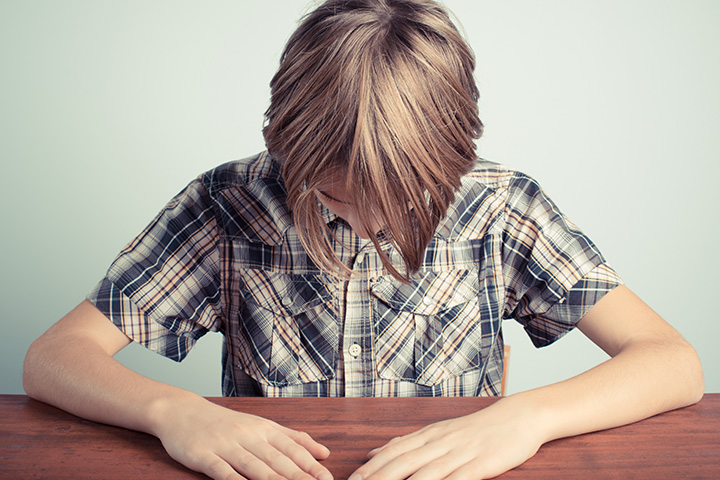A recent column in The New York Times explores the role of guilt in children, and explains how it relates to the way kids develop character virtues like empathy and kindness.


A recent column in The New York Times explores the role of guilt in children, and explains how it relates to the way kids develop character virtues like empathy and kindness.
Pediatrician Perri Klass discussed how guilt—“a complicated element in the parent-child equation”—is a healthy part of child development that evolves as they grow.
Klass cited research by University of Toronto psychology professor Tina Malti, who argues that “moral guilt is healthy, good to develop.”
“It helps children refrain from aggression, antisocial behavior,” Malti said.
Malti explained young children can experience an empathic guilt for making another child cry, or for violating their own standards of right and wrong, and “those two reactions can be entirely independent, or can go together.”
Children generally develop beyond the simplistic version of guilt by age 6, when it becomes more about transgressions.
“There’s lots of evidence that healthy guilt promotes children’s prosocial behavior,” Malti said.
Helen Egger, chairman of the department of child and adolescent psychiatry at NYU Langone Health, told Klass guilt stems from “theory of mind” and it’s closely tied to a child’s empathy for others.
Egger said “children have to have developed a theory of mind, self and others, to be able to feel guilt.” On the other side, “when you have lying or lack of guilt, the child seems to have a reduced capacity for empathy,” she said.
Klass contends “guilt is part of children’s normal development, and we don’t actually want to see children grow up without it, but we also worry that they may judge themselves too harshly, or feel responsible for things that are well beyond their powers (the classic one would be the child who blames himself for his parents fighting, or even divorcing).”
Egger, Malti, and others highlighted the links between dysfunctional forms of guilt and depression and anxiety, and offered ways adults can identify and correct children to ensure they put their relationships and behavior in proper perspective.
The researchers highlight the natural and productive role of guilt to help youngsters internalize the values of society, a process that James Davison Hunter, founder of the Institute for Advanced Studies in Culture at the University of Virginia, discusses in broader context in The Tragedy of Moral Education in America.
In a critique of contemporary moral culture, Hunter writes, “. . . in the attempt to avoid the language of good and evil, the word guilt is effectively banished from this new vocabulary. People certainly feel guilty, but no one is actually guilty. Because we understand the mental and social causes of behavior, we know that wrongdoers are troubled, not guilty, and need therapy, not punishment. The goodness innate in them has not been properly brought out . . .”
Educators can explore the questions of guilt more deeply with students with lessons from the nonprofit Facing History and Ourselves, which offers a challenging assignment on guilt and responsibility in the context of the Nuremburg Trials.
“Using this lesson along with the documentary (‘Nuremburg Remembered’) will introduce teachers and their students to the essential questions of guilt, judgment and responsibility that were initially posed at the end of World War II and continue to be raised in the twenty-first century,” according to the Facing History site.
For further reading on CultureFeed